Beatrice Fineschi, Daragh Grant, Valerie Levan, Oscar Pineda-Catalan and Sunit Singh have been awarded the newly established Glenn and Claire Swogger Award for Exemplary Classroom Teaching.
Based upon nominations from students in the College, the award recognizes outstanding teachers with College appointments, who introduce undergraduates to habits of scholarly thinking, inquiry and engagement in the Core Curriculum, the College’s general education program.
In addition to the Swogger Award, four faculty members were recently awarded the Llewellyn John and Harriet Manchester Quantrell Awards and four graduate students received the Wayne C. Booth Prize.
Read more about the Swogger Award recipients below:
Beatrice Fineschi, Associate Instructional Professor, Biological Sciences Collegiate Division
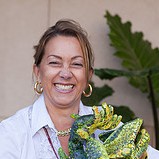
Beatrice Fineschi has always been attracted to the sciences because of their clarity and rigorous thinking. She first became interested in biology in high school. “I realized that a revolution was on its way, owing to new discoveries and new emerging technologies. I felt a sense of excitement and wonder, and I wanted to be part of it,” she said.
Now, as she teaches Core Biology for non-biology majors, Fineschi works to bring that same excitement to her students, who return the favor with their diverse points of view.
“They are extremely diverse in terms of ethnicity, nationality, religious beliefs, and cultural backgrounds, so that for every argument, one is offered an amazing variety of points of view,” said Fineschi, who has taught at UChicago for 19 years. “Being able to meet the challenges that arise from constantly interacting with such a remarkable group of individuals is what drives and motivates me most as a teacher and educator.”
At the end of each quarter, Fineschi encourages students to follow their passions, maintain their enthusiasm and never stop trying. The unique challenges created by the coronavirus pandemic during Spring Quarter have also inspired a new level of admiration and pride for Fineschi in her students.
“In spite of it all, together we were able to overcome problems and adversities and still enjoy a meaningful and rewarding learning experience,” she said.
Daragh Grant, Senior Lecturer, Social Sciences Collegiate Division
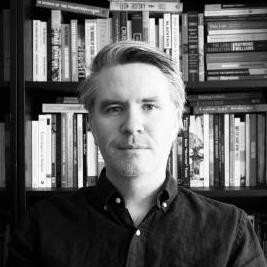
Daragh Grant enjoys teaching in the Core because it brings together students with different disciplinary interests and forces them to explain their points of view to one another.
“They have to learn to see the text—and the world—from a perspective other than their own and to find a way to make themselves understood to someone who holds a contending perspective,” said Grant, who co-chairs the Classics of Social and Political Thought sequence.
Though the topics he teaches in the classroom are not directly linked to his own research on colonialism and empire, Grant believes his scholarship is greatly enriched by the time he spends interacting with students.
“Part of the task of a teacher is to approach a text from any given student’s point of view, to see their interpretations or confusions from the inside out and to help them clarify, for themselves, how they understand a text,” Grant said. “Teaching cultivates this skill, and when I return to my research it is a skill that helps me to get a grip on the life-worlds of the people about whom I am writing and to present an account of those worlds to a reader of my work.”
And his students recognize his extraordinary dedication to teaching. One student nominator described Grant as “an excellent facilitator with a brilliant sense of humor and a knack for connecting everything within the readings and the real world together, our eighty-minute classes pass in the blink of an eye without empty moments.”
Valerie Levan, Assistant Instructional Professor, Humanities Collegiate Division
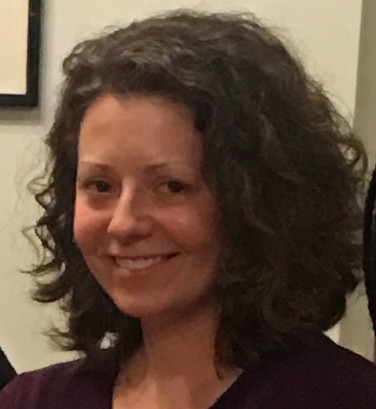
Valerie Levan arrived at UChicago as a graduate student nearly two decades ago. The University has been her intellectual home ever since.
Now an instructor of the Reading Cultures sequence in the Humanities Core, Levan loves the challenge of working with undergraduate students. In addition to her experiences as a lecturer, she has served as a resident head in Chamberlin House and taught during the summer for the Chicago Academic Achievement Program. Living and working in close proximity to students has helped her understand the importance of tailoring her instruction to different groups of young people.
“These experiences have really brought home the truth of the statement that we teach students, not content—which in my interpretation, means continually adjusting what I am doing according to the interests and prior experiences in that particular classroom,” she said.
For her, the classroom is a space that should help ease the transition from high school to college and support students “in developing their academic personae.”
“By the time students complete the Reading Cultures sequence with me, I want them to have a very sophisticated sense of how to shape their prose and argumentation to create value for particular readers,” said Levan, who has taught in the Humanities Core since 2006.
Though she has taught the same syllabi for a number of years Levan says that “each group of students brings fresh perspectives and reactions to the materials, and I learn from them every time I teach a text.”
Oscar Pineda-Catalan, Senior Lecturer, Biological Sciences Collegiate Division
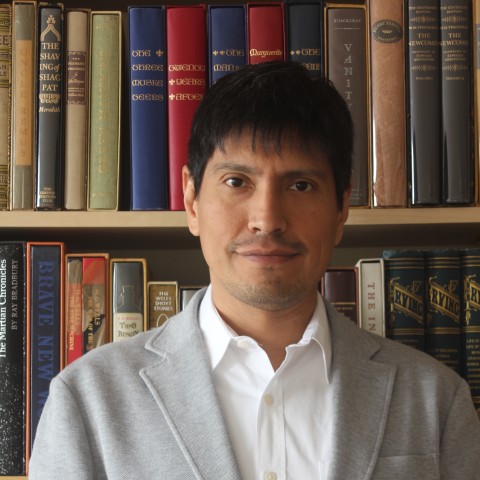
Oscar Pineda-Catalan believes a foundational pillar of education is to inspire curiosity in students and to increase their engagement.
“I see my courses as windows allowing students to explore how scientists have moved our understanding of nature forward,” said Pineda-Catalan, who teaches Core Biology and other courses for non-biology majors. “I try to engage them using active methods, leaving room for them to explore their own ideas and questions.”
As a way to further inspire students who come from across disciplines and backgrounds, Pineda-Catalan has co-led the effort to redesign the Core Biology curriculum by incorporating a hands-on approach to scientific research and reasoning, immersing students in mentored research projects of their own design.
A student in the re-imagined Core Biology course wrote: “As a person who has not taken biology in a long time, this structure helped me delve right in and easily understand what we were learning, as I saw it practically happen in front of me.”
To Pineda-Catalan, working with students is the most important motivation in his professional career. “To see all the talent and energy of young students fuels my hopes of a better and brighter future,” he said.
At the end of his courses, he reminds his students that “we always face challenging times, but remember that your minds are free and your education is a key component that will allow you to find solutions and move forward in your lives and careers.”
Sunit Singh, Assistant Instructional Professor, Social Sciences Collegiate Division
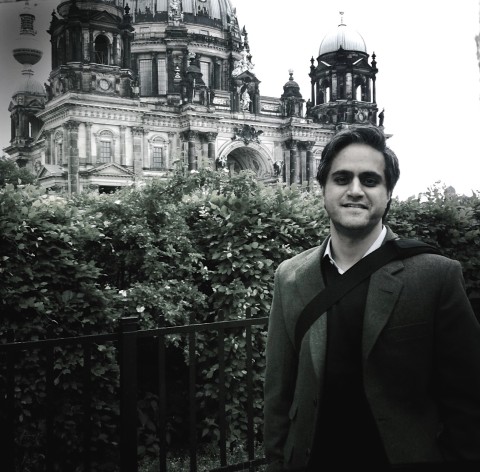
One might consider Sunit Singh to be a “lifer,” having earned his undergraduate degree, two master’s degrees and a doctorate from the University of Chicago.
Now an instructor in the College, Singh confesses he is happiest when he is back teaching in the Core.
“This is where I can take off the cloak of omniscience and re-inhabit the role of a student grappling with a classic and magisterial work, such as ‘The Discourse on the Origins of Inequality’ or ‘The Wealth of Nations,’” said Singh, who teaches sections of the Power, Identity, and Resistance sequence and Colonizations sequence.
In nominating him for the Swogger Award, one student remarked that “Professor Singh encouraged us to think more deeply and rigorously about every text, which reflected how he saw, in each of his students, a capacity to rise to the intellectual occasion.”
“Instead of just critiquing [a historical text] Professor Singh challenged us to grapple with its conditions of possibility: its shortcomings, but also its promises and seductions,” the student wrote.
On his last day of class, Singh leaves his students with a message about what it means to approach history philosophically—“I underscore that studying history, insofar as it painfully reminds us of the ambitions that others once held for the future which we now inhabit, allows us to appreciate what has been left unachieved and to catalog all of the promissory notes that remain unredeemed.”